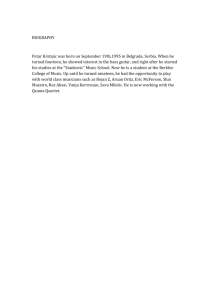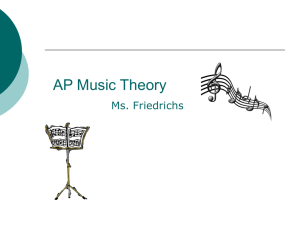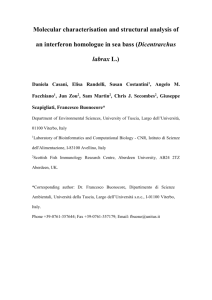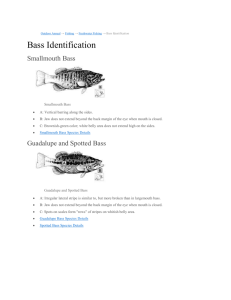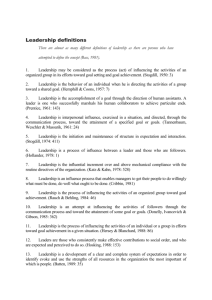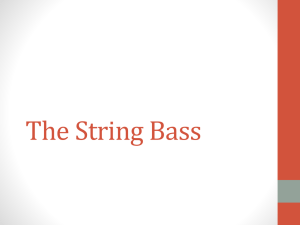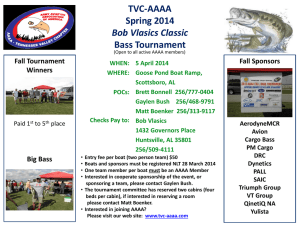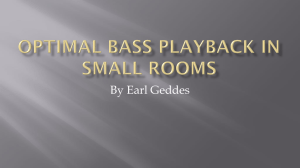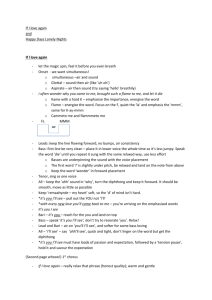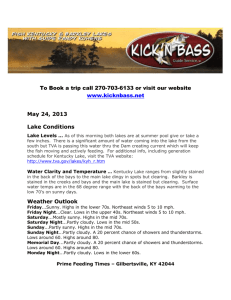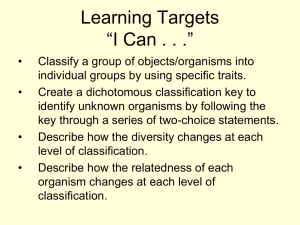Area of Study 1, Ground Bass
advertisement
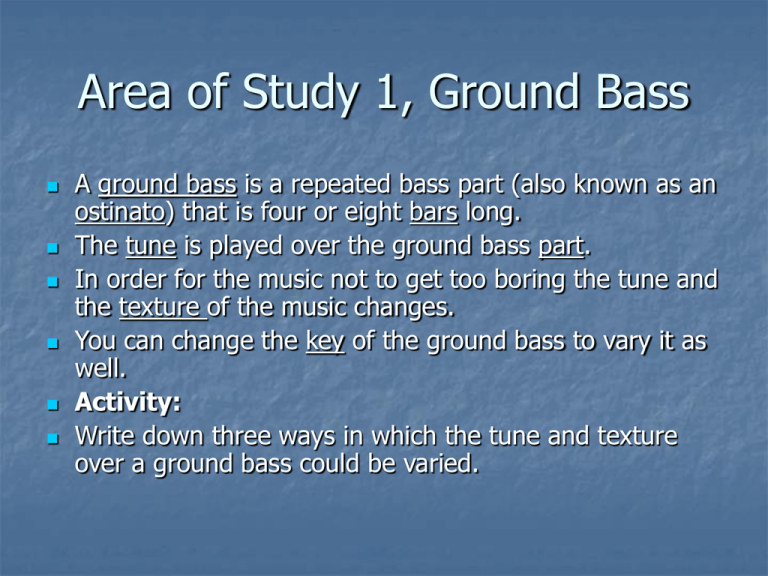
Area of Study 1, Ground Bass A ground bass is a repeated bass part (also known as an ostinato) that is four or eight bars long. The tune is played over the ground bass part. In order for the music not to get too boring the tune and the texture of the music changes. You can change the key of the ground bass to vary it as well. Activity: Write down three ways in which the tune and texture over a ground bass could be varied. 1. The melody could be changed, have notes added or be decorated. 2. The harmonies could become more complex 3. There could be more than two lines (ground bass and melody), More instruments and more parts could be added and the texture could be changed. The ground bass has a monophonic texture. When you add a melody parts (that play roughly at the same time) the music has a homophonic texture. If the melody, the ground bass and the harmonies play at different times the music has a polyphonic texture. Listening and Appraising Listen to this music ‘Pachelbel’s (1653-1706) Canon’. 1. How many bars long is the ground bass? 2. How does the composer vary the tune? 3. How does the composer vary the texture? 4. Can you think of any similarities with pop music? A bit more on ground bass The Chaconne and Passacaglia are dances that use the ground bass. In the Chaconne the ground bass is a repeated chord pattern In the Passacaglia the ground bass has a tuneful bass part that usually has three beats in a bar. The ground bass was most popular in the 17th and 18th Centuries but was used later as well. Activities 1. 2. 3. Compose an eight bar ground bass Compose a main tune to go over your ground bass and one variation Perform your ground bass When composing take into account what instruments the group plays – this way compositions can be played live, not always on the computer.
